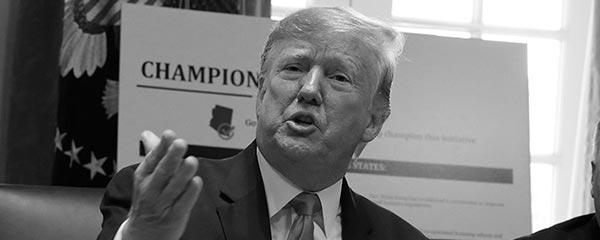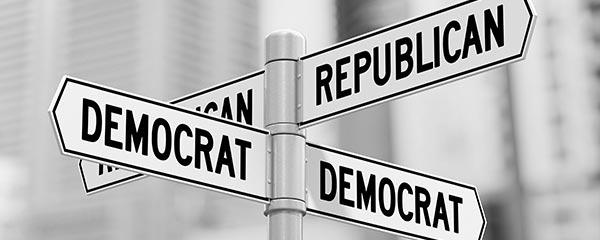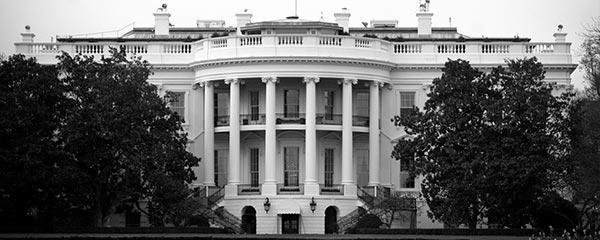The U.S. Senate is now in the middle of the third impeachment trial in American history -- an excellent time to review what we know about public opinion on these historic proceedings. We didn't have public opinion polling as we now know it in 1868 when Andrew Johnson was in the same position, but we certainly did in 1999 when Bill Clinton was on trial. So, where possible, I'll compare what we are finding now to what we saw 21 years ago.
Nothing Is New; Impeachment Attitudes Tracked Clinton's Approval
Americans' support for the Senate convicting Clinton in 1999 was much lower than current support for convicting Donald Trump. ║┌┴¤═°'s Jan. 22-24, 1999, survey (one of a number we conducted while Clinton was on trial) found 33% of Americans in favor of Clinton being found guilty and removed from office, while 64% were against. Our latest survey on Trump shows 46% in favor of his conviction.
In the 1999 survey, Clinton's job approval rating was 69%, much higher than Trump's current 44% approval. So, the lower support for Clinton's conviction went hand in glove with his approval rating: 64% were against conviction compared with his 69% approval rating, and 33% were in favor of conviction juxtaposed against a 29% disapproval rating.
Thus, as is the case now for Trump, Americans' views on Clinton's impeachment largely reflected their overall assessment of the job he was doing more generally. Clinton had a high job approval rating and a concomitantly low "convict" rating; Trump's approval is lower and his "convict" rating higher.
This is not necessarily surprising. Presumably, the presidential actions that led to impeachment are baked into Americans' overall assessments of these two presidents when Americans are asked to evaluate their job performance.
Or, perhaps more likely, Americans' overall views of the president (particularly in our emotionally partisan times) predetermine how they are going to perceive anything relating to the president, including his impeachment. Some GOP senators have said their minds are made up on their impeachment vote even before they hear the House evidence. Along the same lines, many Americans' minds may already be made up on impeachment, regardless of the specific facts of the matter.
Slightly Higher Bar for Conviction Than Acquittal
As noted, Americans' views on the impeachment of President Trump largely correlate with their overall views of the job he is doing as president. There is, however, a slight but evident deviation from a 100% relationship between Trump approval and views on the desired impeachment verdict.
Just 4% of Americans who approve of the job Trump is doing as president say he should be convicted, while a modestly higher 15% of those who disapprove of Trump say he should be acquitted. Apparently, there is a slightly higher bar for conviction among those who don't like Trump than there is for acquittal among those who do like him (although both of these positions are very much in the minority).
These relationships help explain why support for Trump's acquittal is higher than approval of the job he is doing as president in our January ║┌┴¤═° poll. Specifically, while 53% of Americans disapprove of the job Trump is doing as president, a smaller 46% are in favor of conviction. And, while 44% approve of the job he is doing, 51% are against conviction.
This same pattern was not as pronounced for Clinton, as measured in our January 1999 survey. Some 86% of those who approved of Clinton wanted him acquitted, while 82% of those who disapproved wanted him convicted.
Along these same lines, ║┌┴¤═°'s Jeff Jones noted in his recent review of our latest data on impeachment attitudes that Democrats are slightly less polarized in their attitudes toward Senate conviction than are Republicans. Some 15% of Democrats say the Senate should vote to acquit, compared with 7% of Republicans who say the Senate should convict. This too underscores the finding that the bar for conviction is a little higher than the bar for acquittal.
Support for Conviction Varies Modestly Across Recent National Surveys
Americans' support for removing Trump from office varies in a narrow range between 46% and 51% in recent polls.
- A conducted Jan. 6-19 found 51% in favor of removing him from office, with 46% opposed.
- A conducted Jan. 16-20 shows 49% in favor of the Senate convicting and 48% opposed.
- A conducted Jan. 16-19 shows 51% in favor of conviction and 45% against.
- Two polls conducted slightly earlier in the month show similar results: A in the field Jan. 8-12 has a 46% convict/48% acquit split, and an (Jan. 7-12) shows an even 47%/47% divide.
- ║┌┴¤═°'s Jan. 2-15 survey, as noted, shows 46% in favor of conviction and 51% against.
Impeachment Is Not Likely to Change a Lot
One of the signature public opinion findings in the Trump era has been the lack of major change in presidential job approval ratings. As ║┌┴¤═° recently reported, Trump's approval rating in individual polls has ranged between 37% and 46% over the past year -- not a lot of variation around the average of 42% for his third year in office. More broadly, my colleague Jeff Jones recently analyzed Trump's quarterly averages and noted that "Trump's approval ratings have been constrained to a fairly narrow range during his presidency, between the high 30s and low 40s."
Based on this track record, there is a low probability that we will suddenly see a major shift in Trump's approval ratings going forward, regardless of the outcome of the Senate trial.
It's worth remembering, however, that one of the notable outcomes of the Clinton impeachment process was the apparent bump it gave his approval ratings, from the 60% range in early/mid-January 1998 to his administration high of 73% in December 1998 (and ratings as high as 70% in February 1999). Trump's most recent ║┌┴¤═° approval ratings are 44% (January) and 45% (December), among the best of his presidency, and higher than he received in late 2018 and early 2019. But my analysis of the trend in Trump's ratings indicates that it is too early to say if he is going to enjoy any type of lasting "impeachment bump," particularly because he was getting higher ratings in the spring of 2019, well before impeachment became front-page news.
Impeachment Unlikely to Change View That Government Is Most Important Problem
It's unlikely that the impeachment proceedings in the House and now the impeachment trial in the Senate are going to change Americans' view that dysfunctional government, and dysfunctional elected leaders, constitute the country's biggest problems.
Optimists could argue that the sight of all 100 senators assembled together in a body, following constitutional procedures as they deliberate in front of the chief justice of the United States, could increase faith in the governmental system. As The New York Times media reporter James Poniewozik , "There was something striking about the still ritual, in a heated media age, of a hundred senators arrayed in front of the chief justice of the United States, being called by name and answering yes or no to vote after procedural vote."
This tableau may indeed be striking, but the content of the debate remains highly polarized and rancorous and seems unlikely to convince many observers that a new era of political civility and compromise is upon us.
The impeachment trial is almost certainly not going to result in a major consensus verdict in either direction -- acquittal or conviction. It's likely the vote will end up similar to the public opinion data reviewed above -- a slight majority of senators voting to acquit and a minority voting to convict. Thus, the outcome of the Senate procedure will end up reflecting the same polarized America as was the case when the procedures began.
All of this is probably going to leave the people of the U.S. in their preexisting camps. Republicans will say the whole process was a waste of time and indicative of unneeded partisan maneuvering on the part of the House. Democrats will say the whole process was short-circuited by the failure of the Republican senators to accept real evidence of presidential malfeasance. Both camps will therefore look negatively on the process as still another example of a broken government. And, of course, essentially by definition, the fact that the impeachment process has been invoked in the first place means something is wrong with the system.
There is also the issue of how much attention people are paying to the whole process. The shows that 37% of Americans are following the "congressional impeachment proceedings against Donald Trump" very closely (an equal percentage are following it somewhat closely). The poll shows a slight drop in those following it very closely from last fall. The process is certainly unlikely to affect Americans' negative views of government one way or the other if Americans aren't paying close attention.




